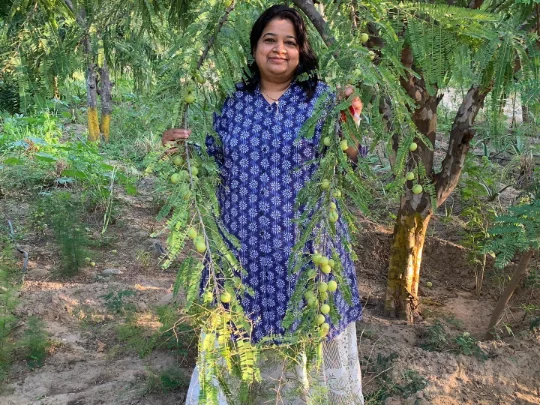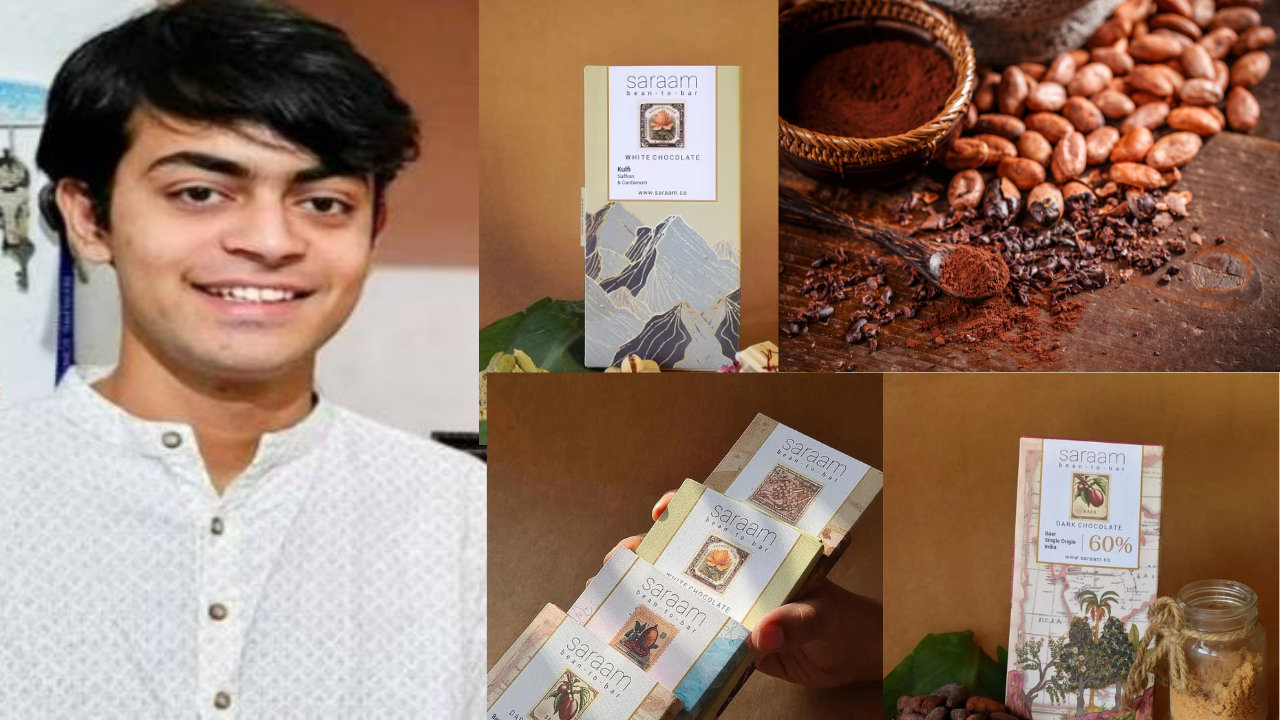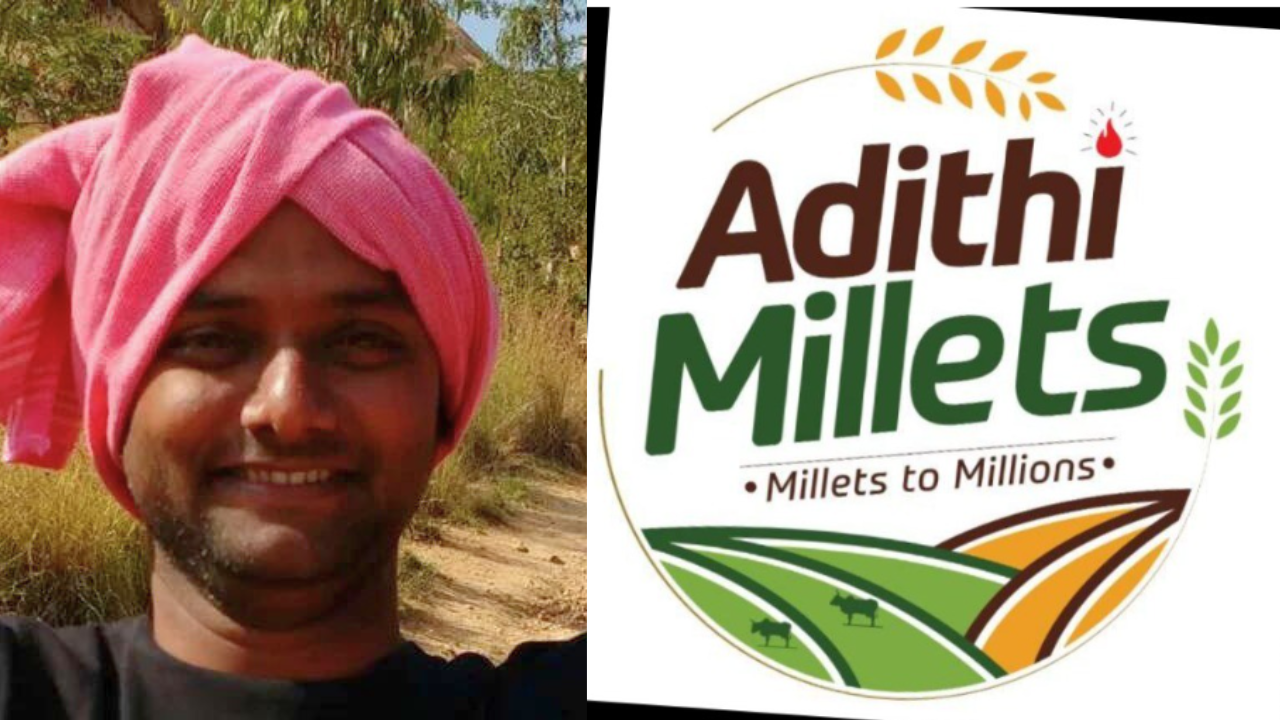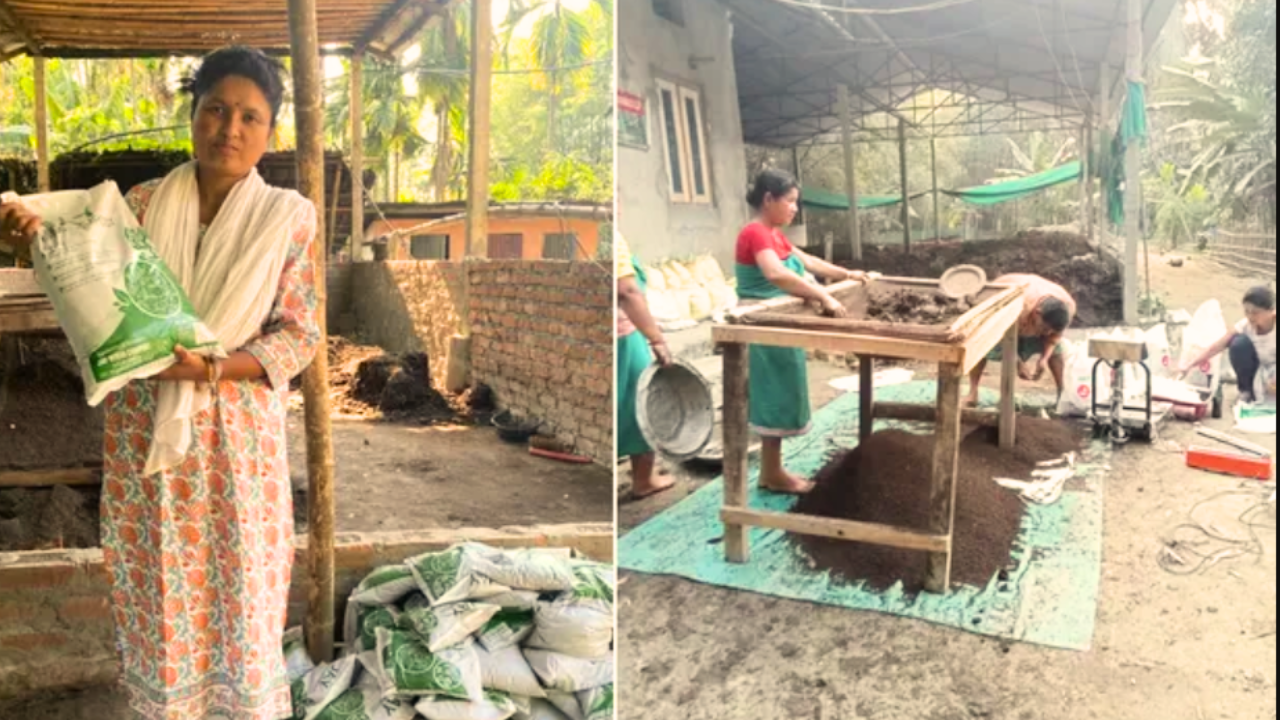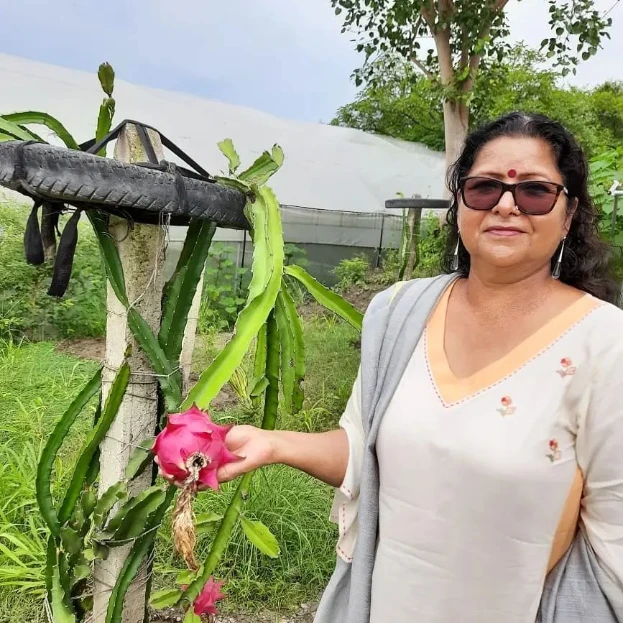“Between 2004 and 2006, there was a significant increase in the number of farmers taking their own lives, especially in the state of Maharashtra. According to data from the National Crime Records Bureau (NCRB), in 2006, a troubling 17,060 farmers across the country tragically died by suicide, with 1,427 of them hailing from Maharashtra. Of these, 1,065 occurred in Vidarbha, known as the cotton belt of the state.
These distressing statistics deeply affected Sharmila Jain Oswal, who was living in Canada at the time. She expressed, ‘Even though I had a well-paying job, I felt a strong longing to return to my homeland and support our struggling farmers, contributing to our nation’s food security. Growing up in a village, I personally witnessed the challenges faced by farmers. Unfortunately, many government initiatives were not effectively reaching them, leading to mounting debts and poor crop yields.’
As a result, Sharmila made the courageous decision to leave her job and return to Pune in 2008. She then embarked on a two-year journey, conducting surveys in Maharashtra, Gujarat, and Rajasthan to gain a firsthand understanding of the difficulties faced by farmers.
Subsequently, she founded an NGO called the Green Energy Foundation to offer practical solutions to farmers. The organization focuses on revitalizing water sources and implementing modern farming techniques, all while empowering women in agriculture.”
An early life that planted the seeds for transformation
“In the late 1970s, Sharmila’s father operated a flour mill in Poynad, a small farming village near Alibaug, Maharashtra. Millets were the primary grains processed there. Growing up in this environment, Sharmila gained valuable insights into the tough lives of farmers and their families.
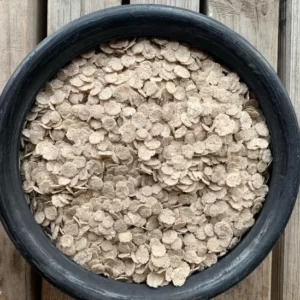
From her father, she learned two vital lessons. First, the significance of millets as a staple food. Second, the idea of ‘corporate social responsibility,’ a concept she grasped even before hearing the term CSR.
Sharmila attended a Marathi medium school, where many children faced various hardships. Their fathers, mostly farmers, struggled to maintain a steady income. Girls were often married off at an early age and denied access to higher education. Even in her orthodox Rajasthani family, women faced similar challenges, including the practice of wearing ghungats (head coverings).
Listening to stories of harassment and domestic violence from schoolmates and relatives, she resolved to become a lawyer to support women confronting these issues. She explains, ‘I wanted a different life from my mother, sisters, or sisters-in-law. I had seen close family members experience domestic abuse. Girls in my school were not allowed to go to school and were wed young. So, I fought for my education.’
Sharmila feels fortunate because both her father and later her husband prioritized her education. However, the struggles faced by the farming community during her upbringing, such as crop failures and mounting debts, deeply affected her.
‘I witnessed firsthand the hardships that farmers and their families endure when crops fail or when there’s a lack of rain. I wanted to work on finding solutions for these problems, especially given the worsening water crisis,’ she explains.
These challenges motivated her to pursue a master’s degree in environmental and agricultural law in England after her marriage. She worked in the UK from 1997 to 1999 and later relocated to Canada, where she practiced law until 2007. Eventually, she returned to her homeland to address the difficulties faced by Indian farmers.”
Assisting farmers in transitioning to environmentally-friendly practices.
Upon her return to Pune in 2008, Sharmila established her NGO with a grant of Rs 10 lakh from NABARD. In 2010, she initiated her first sustainable water management project in Buchkewadi, Maharashtra.
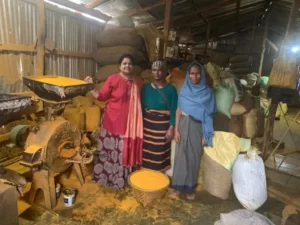
At that time, the village was grappling with a severe water crisis, making farming increasingly challenging. Sharmila recalls the situation: “The entire village, home to approximately 40 farmers, relied on a single small dam for their water supply. We devised a program aimed at optimizing water usage and boosting water availability in the village. We conducted thorough assessments of soil and water conditions and developed a fair water distribution model. Additionally, we assisted the villagers in regulating their water usage to ensure a consistent supply, even during the dry summer months.”
Sharmila’s commitment extended across Maharashtra, Rajasthan, and Gujarat. In Dungarpur, Rajasthan, she played a pivotal role in helping farmers transition from exclusively cultivating corn to a diversified range of crops.
She elaborates on their approach: “Crops like maize demand a significant amount of water. We partnered with ITC’s e-Choupal to guide tribal farmers in Dungarpur on how to cultivate water-efficient crops like moong (green gram) on their fields. This not only reduced water usage but also provided farmers with an alternative crop if one failed. In the process, they gained access to ITC’s marketplace. We also supported farmers in cultivating millets, which require less water.”

Dipti, a farmer from Dungarpur, attests to the positive impact of the program and shares her experience: “Previously, if our crops failed, my husband had to seek employment in other cities. Now, with lentils and vegetables in our fields, we are self-sufficient. We can manage with less water, thanks to the variety of crops we grow.”
Unlocking the potential of millet
Over the past twenty years, Sharmila and her team have made a positive impact on over 1.5 lakh farmers in five different states. They achieved this through various programs focused on water management, cultivating millets and vegetables, and providing training opportunities, all of which have helped these farmers achieve a stable income.
Even before millets gained popularity, Sharmila was advocating for their cultivation in arid regions. She passionately explains, “Millets are a fantastic choice because they are climate-resilient, eco-friendly, and have a minimal carbon footprint. They require very little water, making them a sustainable crop.”
Sharmila’s efforts have involved teaching farmers how to diversify their crops and conserve water by growing millets like ragi, jowar, proso millet, and pearl millet, as well as various vegetables, including unique ones like zucchini.
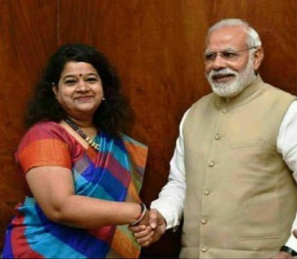
When the pandemic struck, Sharmila’s son Shubham was at home after completing his bachelor’s degree in political science at Ashoka University. During a conversation about millets and the lack of healthy food options, the idea for their startup, ‘Gud Mom,’ was born.
Shubham Oswal shares, “During my time at the university, I noticed many of my peers consuming junk food, and we saw a rise in lifestyle-related health issues among young people. To address this and provide a thriving market for farmers, we launched a startup that follows a farm-to-fork model, selling millet grains and nutritious millet-based snacks.”
‘Gud Mom’ offers a range of millet-based products such as noodles, pasta, cookies, crackers, herb sticks, and more, available through their website, Amazon, and other retailers. Most of their products are priced between Rs 48 and Rs 150.
“Our aim is to establish a healthy ecosystem. Today, children consume too much unhealthy junk food, which isn’t good for them. We’ve transformed millets into a variety of enticing products with international flavors and seasonings that the younger generation enjoys. Our goal is to boost the nation’s immunity,” he adds.
As of now, the startup generates an annual revenue exceeding Rs 16 crore and collaborates with over 5,000 millet farmers throughout India.
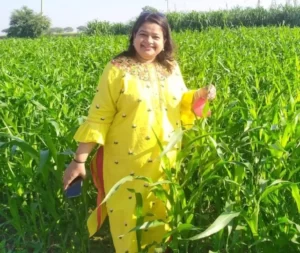
‘Gud Mom’ has been honored with the Best Startup in Organic Farming award in 2021 and the ‘Poshak Anaj Award 2022’ from the Indian Institute of Millet Research. Prime Minister Narendra Modi also recognized and commended Sharmila for her efforts to promote millet cultivation in his ‘Mann ki Baat’ program.
Looking ahead, Sharmila envisions a future where millets are distributed through the public distribution system (PDS). She believes, “If we want more farmers to cultivate millets, they should be available at ration shops. Millets are healthier than wheat and rice and should be included in the mid-day meal scheme to encourage widespread consumption.”
Buy Gud Mom products here

